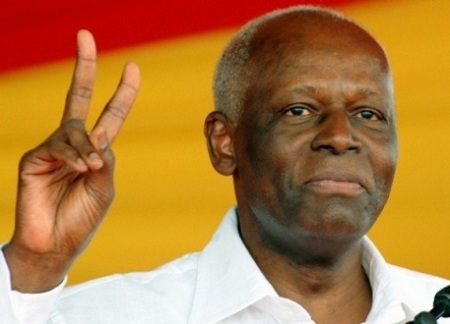So Angola goes to the polls this week, and José Eduardo dos Santos, Angola’s president since 1979 (pictured above), will overwhelmingly be reelected, notwithstanding the rumblings of dissent among the young, the poor and the unemployed. ![]()
The expectations are that Friday’s election will not be free and fair, as I’ve noted in the past.
But a semi-authoritarian regime with sham elections is a vast improvement on decades of civil war. So Angola’s making progress, in that in the past decade, the country has pulled definitively out of a 30-year civil war, which began almost immediately after its independence in 1975. A ceasefire declared in 2002 has held, and the country will have “elections” now for the second time since fighting ended.
An oil boom, too, has boosted the Angolan economy — the country recorded some of the world’s highest GDP growth rates in the past decade, including growth over 20% from 2005 to 2007, and it’s thought to be China’s largest oil supplier. A drop in oil prices slowed Angola’s growth, but the country is expected to grow at around 10% in 2012 — oil production accounts for nearly 45% of the country’s GDP.
That’s where the good news ends.
Around 40% of the country’s 18.5 million citizens remains mired in poverty, and that fact, and the country’s stark rich-poor divide, has been the central issue in the campaigning leading up to the Angolan election.
Political parties in Angola still correspond to the two major groups that contested the civil war.
Dos Santos’s Movimento Popular de Libertação de Angola – Partido do Trabalho (MPLA or the People’s Movement for the Liberation of Angola – Labour Party) currently controls 191 of the 220 seats in Angola’s Assembleia Nacional.
The main opposition party is the União Nacional para a Independência Total de Angola (UNITA or the National Union for the Total Independence of Angola). Although the MLPA is dominated by the northern Ambundu ethnic group and UNITA by the more southern Ovimbundu group, ethnicity does not play an especially huge role in Angolan politics, nor do standard measures of political ideology.
Isaias Samakuva, UNITA’s leader, has called for the election to be postponed in order to ensure a fairer process, and UNITA has accused dos Santos’s regime of widespread interference in the election process and rigging the vote through the use of state funds and through the control of the state media. Continue reading It’s election week in Angola (but don’t expect a real election)
